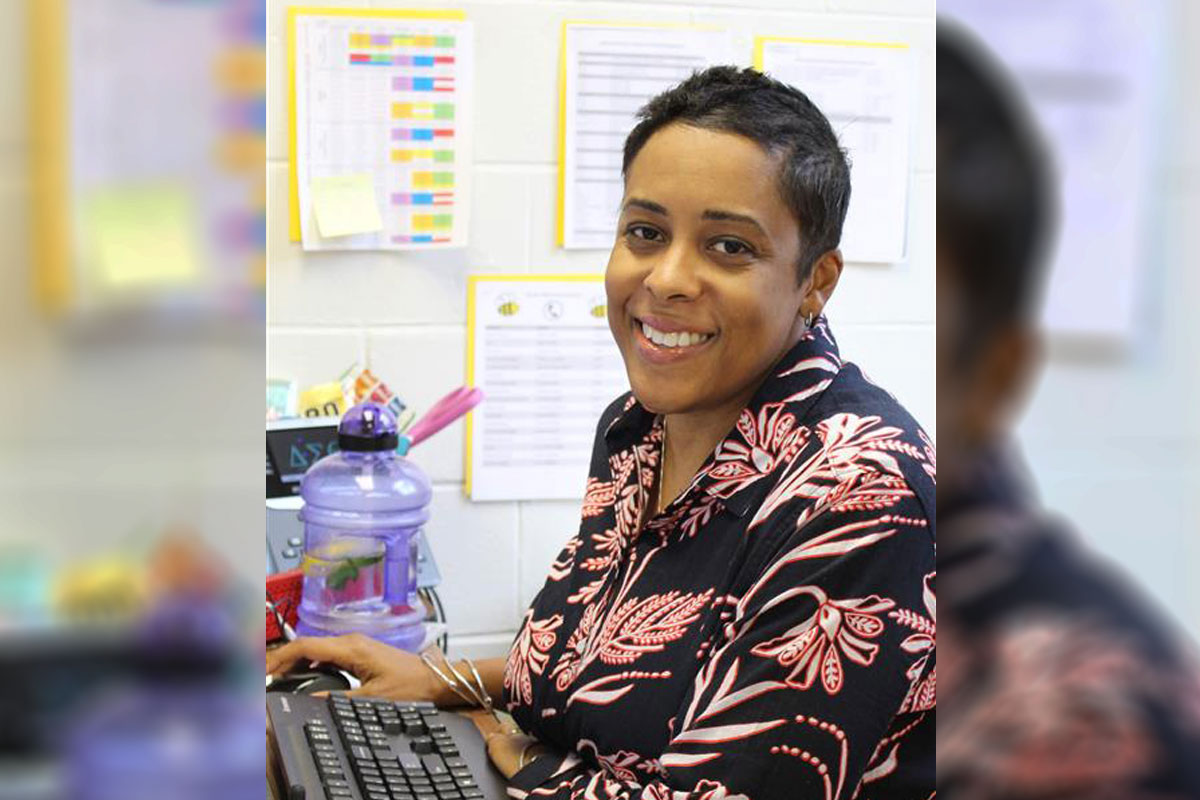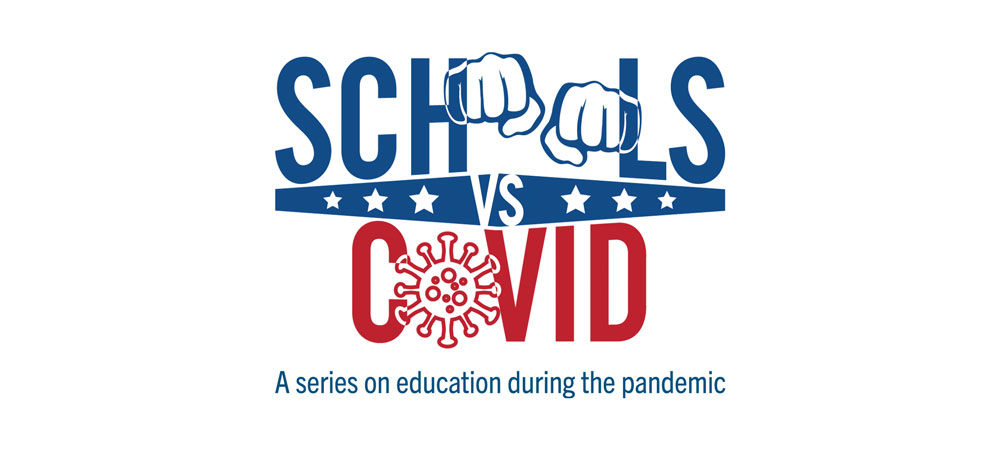Approaching her 13th year as Principal at Beecher Hills Elementary School in southwest Atlanta, Crystal Jones thought she had seen just about everything the job could throw at her.
That, of course, was “B.C.” — before COVID. The pandemic has pummeled Atlanta, and in early August, Atlanta Public Schools, which encompasses 52,000 students in 87 schools, announced that, with the city suffering a “substantial spread” of the potentially fatal virus, it would delay the start of the semester by two weeks and conduct all-virtual instruction for at least the first two months.
It was only the latest turn in a series of directives that have challenged Jones to stay agile and draw on all the leadership skills she honed as a Teachers College Cahn Fellow in 2018 and, since then, as an adviser of four current Cahn Fellows teams.
[Learn more about Teachers College’s Cahn Fellows Program for Distinguished Principals.]
Early on in the pandemic, Jones gathered her teachers and staff on Zoom, asking “everybody to acknowledge everything we are victims of because of this pandemic.
“I asked them to acknowledge the anxiety they were feeling about the things we have no control over. Then I asked them, ‘What are the things within ourselves that we can lean on?’” Together, they decided that what they could control was the school’s vision, focus and priorities.
Each of us is committed to doing what we know is right for our children and our families and to making school the one place for our children and families that is consistent.
“Each of us is committed to doing what we know is right for our children and our families and to making school the one place for our children and families that is consistent,” Jones says.
Indeed, school is a lifeline for many students at Beecher Hill. Some 65 percent of the school’s families qualify for welfare or food stamps. Because the school is located in a “food desert,” far from markets that sell fresh vegetables, fruits and other nutritious food, all of the students are eligible under Georgia law to receive free breakfast, lunch and — if they are on campus for an after-school activity — dinner, too.
Beginning in late March, district police began delivering meals to families occurring in their homes, and Jones and her staff devoted the rest of the semester — a time typically spent in review and testing — to keeping Beecher Hills’ 350 students connected with school. Not all of the students have the adult support they need to keep up with their studies and stay well, so the teachers called their students at home. This month, Jones and her staff are making house visits to try to reconnect with a small number of students who stopped attending virtual classes. This fall, the school will have a nurse, social worker and counselor on staff, and the district has added a feature to students’ phones that can enable children to report abuse at home.
Meanwhile, academics will be an equally high priority. “We can’t wing it like we did in the spring,” Jones says. In early August, teachers were set to participate in online strategy sessions around virtual instruction. They were issued ear pods and Zoom accounts, and they were given training on learning apps like Nearpod, a tool for making lessons interactive, and Freckle, a platform that helps differentiate instruction in math, English language arts, social studies and science for students at different levels
Teachers will also prepare for a district-wide “Runway to Learning” program during the week of August 17, when students will be brought online in small groups to learn how to access coursework on the Internet and to have their reading levels assessed.
Jones is paying special attention to helping 16 of her students who are in a specialized classroom for those with severe and profound disabilities. These students have missed tutoring and therapy sessions since March. Prior to the shutdown, “a lot of them had made gains not only with their social skills, but with occupational therapy and physical therapy,” she says. “I want to absolutely make sure that they get what they need to continue their development, and Zoom is not the best way that we can do that. I don’t want their developmental progress to lag.”
Some of my teachers have pre-existing conditions. I can say to them, ‘I know you. I know, for example, that you have young children. I can consider who you are and what you need.’
None of these plans will become real, however, unless Jones retains and deploys staff who can execute them, and she needs to find teachers who combine the right subject expertise with the right technology skills. So far, no teachers at Beecher Hill have elected to transfer or retire, but the prospect of returning to the school building might cause some staffing problems. Jones says she will have some leeway to accommodate teachers who cannot or choose not to return to school when it reopens.
These complex challenges are playing out against a backdrop of nationwide public demonstrations against police killings of Black people. Both the violence and the protests have been happening for years, but public reaction hit a new flashpoint after Minneapolis police killed an unarmed man, George Floyd, in late May, nearly three months into COVID-19 school closures. Demonstrations in Atlanta — an important historical site of the civil rights movement — drew large crowds and got the attention of students and teachers at Beecher Hill, several of whom were connected with the organization Black Lives Matter at School.
“As an International Baccalaureate school, we always encourage our students to use what they have learned and take action to make the world better,” Jones wrote this month in an email. “This organization serves as a resource as our teachers support students in taking action and using their voice and talents to inform change where they can.”
Back in June when the unrest began, Jones recorded and sent out a read-aloud to students of the story “Say Something!” by Peter H. Reynolds. “I wanted to let them know they were important and have collective value, and if we used our voices, our talents, our creativity we can all say something in our own way.”
In navigating both the COVID-19 crisis and the Black Lives Matter at School actions, Jones credits the work she did as a Cahn Fellow in 2018 with helping her to build mutual trust with her staff. That connection, she says, has ensured that both they and she are being honest and being heard — and it also has freed her to reach out to her staff just to make sure they are well.
“Some of my teachers have pre-existing conditions. I can say to them, ‘I know you. I know, for example, that you have young children. I can consider who you are and what you need.’
“It’s not just the Crystal Show, and they know that,” she says. “It’s what I call ‘a culture of We.’ And that’s the beauty of this — being a leader who is connected to people.”

